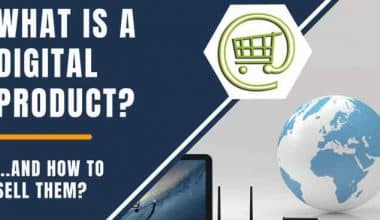If there’s one thing common to business owners, it’s the fact that they all desire to increase their visibility and increase sales. To achieve this, they adopt every possible means including software solutions to enhance customers’ experience, business performance and overall productivity. If there’s one thing I’ve learned from my rollercoaster ride in the world of entrepreneurship, it’s this: behind every successful business is a rock-solid foundation of stellar client relationships. And guess what? The secret sauce to nurturing those relationships is account management software.
Having the right tools can turn those battles into triumphs faster than you can imagine as your business grows. Imagine if you’re juggling dozens of client accounts, each demanding your attention like a puppy in a pet store window manually? It’ll will definitely be overwhelming. But instead of feeling overwhelmed, your trusty account management software can help you mange these accounts. It’s like having a personal assistant who never sleeps and never forgets a single detail. Today, my focus is simply to let you in on the importance of these solutions and to guide you on how to choose the best account managemnt software that’s suitable for your business.
Key Points
- Account management software is designed to help businesses effectively manage their relationships with clients or customers.
- It focuses on improving customers’ experience and takes care of everything from lead generation to business growth.
- Account management software and accounting management software are not the same because they serve different purposes.
- To choose the best account management software, you must first define your business needs, asses the tool’s scalability, evaluate features, usability, and reviews and work with your team.
- There are free account management software solutions but if you’ll get the most out of it, it’s best to subscribe to a paid plan.
- Salesforce, Hubspot Sales Hub, Zendesk, Zoho CRM, Freshworks and Apptivo are some of the best account management software solutions.
What is Account Management Software?
Account management software is designed to help businesses effectively manage their relationships with clients or customers. It provides tools and features to streamline various aspects of account management, including client communication, data organization, task management, and performance tracking. To me, it’s like having a super-efficient assistant by your side. You know what an efficient assistant does, right? From helping you stay organized, to staying connected, and updated, and ultimately, delivering better results.
In the same way, account management software enhances efficiency, productivity, and collaboration within account management teams while improving client satisfaction and retention. I call it the centralized platform for managing client relationships and driving business growth.
Read Also: CLIENT MANAGEMENT: Definition, Tips & Benefits
How Does Account Management Software Work?
First, it helps you keep all your client information in one place. You know, names, emails, phone numbers, all that stuff. So, instead of digging through piles of sticky notes or endless email chains to find what you need, it’s all at your fingertips.
When you forget to follow up with a client after a meeting or lose track of important emails, this software, like a personal assistant, reminds you to stay in touch.
Secondly, you can also create tasks and assign them to team members. One of the reasons I recommend this software is that when you’re trying to figure out if a deal with a client is going to close or not, it plays a vital role. It gives you a bird’s-eye view of all your deals in progress, so you know which ones are likely to come through and which ones might need a little extra attention.
Plus, it helps you keep track of all the important documents and files related to your clients. This means you won’t have to search through folders or dig through your inbox to find the contract you need. It’s all stored neatly in one place, easy to access whenever you need it. In all, it takes care of everything from lead generation to business growth.
Is Account Management Software Same As Accounting Management Software
No, account management software and accounting management software are not the same because they serve different purposes. Account management software is commonly used in sales and customer service to keep track of client information, communications, and transactions. It helps businesses maintain strong relationships with their customers and streamline processes related to sales and customer support. On the other hand, accounting management software is designed to handle financial transactions, record-keeping, and reporting within a business. It helps manage tasks such as bookkeeping, invoicing, payroll, budgeting, and financial analysis.
What is the Difference Between CRM and Account Management?
CRM encompasses a broader range of activities related to managing customer relationships across the entire lifecycle; account management specifically focuses on post-sale activities aimed at nurturing and maximizing the value of existing client relationships. However, both concepts are important components of a comprehensive customer-centric strategy but serve distinct purposes within an organization.
What are the Activities of Account Management?
Account management activities are focused on building and maintaining strong relationships with clients, driving value for both the client and the organization, and ultimately contributing to long-term business success. The following are some of the activities of account management:
- Client Communication
- Relationship Building
- Account Planning
- Customer Support
- Contract Renewals and Negotiations
- Performance Monitoring
- Cross-functional Collaboration
- Client Advocacy
Choosing the Best Account Management Software

I’ve always told clients that the importance of efficient account management cannot be overstated as business steadily grows. However, selecting the right account management software requires careful consideration and evaluation of various factors to ensure it aligns with your business needs and facilitates seamless operations across departments. The following is a comprehensive guide to help you navigate the process effectively:
#1. Define Your Business Requirements
Before choosing any account management software, take the time to identify your specific business needs. What are the pain points in your current processes? Are there inefficiencies that need to be addressed? By asking pertinent questions, you can pinpoint the areas where an account management solution can make a significant impact.
#2. Assess Scalability
As your business evolves and expands, it’s essential to choose a software solution that can scale alongside your growth. Scalability ensures that the software can accommodate increasing workloads and evolving requirements without the need for frequent overhauls or migrations. Look for a solution that offers flexibility and scalability to support your long-term objectives.
#3. Evaluate Features, Usability, and Reviews
When evaluating account management software, pay close attention to its features, usability, and user reviews. The software should offer a comprehensive suite of features that align with your account management goals, including customer relationship management (CRM), invoicing, reporting, and analytics. Additionally, prioritize usability, ensuring that the software is intuitive and easy to navigate for your team members. Reading reviews from other organizations can provide valuable insights into the software’s performance and reliability.
#4. Foster Collaboration with Your Team
Involving your team in the selection process is crucial for ensuring buy-in and adoption of the chosen software. Consult with stakeholders from various departments, including marketing, sales, and customer service, to understand their specific requirements and preferences. If your business already uses automation tools in these departments, consider the integration capabilities of the account management software to streamline workflows and enhance efficiency.
Alternatively, you may opt for an all-encompassing solution that caters to the diverse needs of different departments within your organization. By fostering collaboration and alignment across teams, you can maximize the utility of the chosen account management software and drive collective success.
Best Account Management Software
The software solutions listed below are not the only ones available. This list was composed based on the software solutions I’ve seen clients integrate into their businesses to manage customers’ accounts and enhance productivity. Therefore, it’s in no particular order.
#1. Salesforce Sales Cloud
While some account management software is designed to specifically manage customers’ accounts, Salesforce is much more than that. It plays a key role in managing accounts but the truth is that Salesforce is more of an effective CRM system. Its primary focus is not just on managing customers’ details and relationships but also on streamlining business operations, tracking leads, enhancing customers’ experience, and bringing about overall growth to the business.
Key Features of Salesforce Sales Cloud as an Account Management Software
The following are some of the key features of Salesforce:
- Analytics and Reporting
- Lead management
- Flexibility and scalability
- Customer service
Pros of Salesforce Sales Cloud
The following are some of the pros of the Salesforce sales cloud:
- It automates workflows, and standardized processes, and enhances team efficiency.
- It enables businesses to focus on core activities.
- Salesforce offers extensive customization and integration capabilities.
- It allows businesses to tailor the system to their unique requirements.
- It provides advanced analytics and reporting tools.
- Informed decisions from detailed reporting and analytics
Cons of Salesforce Sales Cloud
The following are some of the cons of Salesforce;
- Although it has various plans, Salesforce pricing is high for businesses that are just starting.
- Salesforce account management software may be complex for a beginner
How Much Is Salesforce Account Management Software?
The exact cost of this software solution depends on the plan or package you choose. I love that it has various plans for businesses to choose from—about 5 plans in total—and each of these comes with various solutions for your business. These are the starter plan, the professional plan, the enterprise plan, the Unlimited plan, and the Unlimited+ plan.
Below is more detailed information on these plans:
- Starter: The starter plan costs $25/month
- Professional: The professional plan costs $80/month
- Enterprise: The enterprise plan costs $165/month
- Unlimited: The unlimited plan costs $330/month
- Unlimited+: The unlimited plan costs $500/month
Read Also: HUBSPOT VS SALESFORCE: Which Is the Best CRM Software for You
#2. Hubspot Sales Hub
Hubspot Sales Hub is one of the leading solutions when it comes to software programs that enhance overall business performance, particularly sales. While most people believe it works with diverse business sizes, I do tell clients it’s more feasible with medium- and large-scale businesses. Sales Hub is ideal for businesses that intend to track, nurture, and turn leads into high-ticket paying customers. It has amazing features that help businesses achieve their goals in record time.
Key Features of Hubspot Sales Hub
The following are some of the features of HubSpot Sales Hub:
- AI conversion insights
- Sales document management
- Task management
- Reporting and analytics
- Mobile user support
- Opportunity and pipeline management
- Contact and account management
How Much is HubSpot Sales Hub?
Hubspot Sales Hub has four different pricing plans. Therefore, the amount you’ll pay depends on the plans you choose. The four pricing plans are the free plan, the starter plan, the professional plan, and the enterprise plan. Below is the detailed price of each plan:
- Free: The free plan costs $0.00/month
- Starter: The starter plan costs $18/month
- Professional: The professional plan costs $450/month
- Enterprise: The enterprise plan costs $1,500/month
#3. Pipedrive
Pipedrive’s account management software is a comprehensive solution designed to empower sales teams to build stronger customer relationships, drive revenue growth, and achieve lasting success. With its user-friendly interface, customizable features, and robust functionality, Pipedrive remains a top choice for businesses seeking to elevate their sales processes and maximize their sales potential. Thinking of improving the pipeline to increase sales? Think of Pipedrive.
Pipedrive stands out as a dynamic CRM solution that excels in empowering businesses to streamline their sales processes and manage customer relationships effectively. While renowned for its intuitive sales pipeline management features, Pipedrive also offers robust tools tailored for account management.
Key Features of Pipedrive
The following are some of the features of Pipedrive:
- Activity tracking
- Sales pipeline management
- Sales reporting and analytics
- Integration and marketplace
Pros of Pipedrive
The following are some of the pros of Pipedrive:
- Pipedrive has a user-friendly interface that comes with an intuitive design.
- Allows customization
- It comes with a visual sales pipeline
- Allows automation
- Has reporting and analytics capabilities
Cons of Pipedrive
The following are some of the cons of Pipedrive:
- Not beginner friendly
- It’s relatively expensive for small business
- Lacks Advanced Functionality
Read Also: PIPELINE MANAGEMENT: What It Is, Stages, Benefits & Best Practices
#4. Zoho CRM
Zoho CRM is a dynamic cloud-based solution engineered specifically for seamless account management. I love describing it as the cornerstone for businesses seeking to cultivate and sustain meaningful customer relationships.
The platform is integrated with an inventory management system that empowers organizations to maintain meticulous records of every transaction, fostering operational efficiency and clarity. It also has cutting-edge analytical tools that deliver invaluable insights into the performance and potential of key accounts, enabling strategic decision-making and proactive planning.
Another turn-on feature is that it facilitates real-time communication with customers across diverse platforms. This ensures businesses foster deeper connections and instill loyalty through timely responses and personalized engagement strategies. We can say that Zoho CRM empowers organizations to prioritize customer satisfaction and retention, presenting a holistic solution that transcends mere customer acquisition efforts. Well, I guess that’s why it’s called a CRM, not just an account management software.
Key Features of Zoho CRMThe following are some of the features of Zoho CRM:
- Predictive sales
- Workflow automation
- Marketing attribution
- Canvas Design Studio
- Customer segmentation
- Journey Builder
#5. Zendesk
This list will not be complete without enlisting Zendesk. Why? Because Zendesk, like Hubspot, is a favored choice among businesses seeking effective customer service solutions. It has an intuitive interface and adaptable architecture and offers a versatile platform tailored to elevate account management while fortifying customer relationships. It has analytics and reporting features used for predicting and forecasting results. Its expansive toolkit comprises diverse functionalities meticulously crafted to optimize customer support workflows and elevate the quality of the customer journey.
Key Features of Zendesk
The following are some of the features of Zendesk:
- Analytics and Reporting
- Incident and problem management
- Integration and customization
- Knowledge base
Pros of Zendesk
The following are some of the pros of Zendesk:
- User-friendly interface
- Scalable
- Allows Automation
Cons Of Zendesk
The following are some of the cons of Zendesk:
- The pricing consideration is high
- It’s not that easy to learn
- Mixed Customer Support Experiences
#6. EngageBay
EngageBay may not be as popular as Salesforce and Hubspot, but it’s ideal for all business types, regardless of size. I call it the all-around, start-to-finish tool because it’s the go-to choice that takes care of the sales process from lead generation to closing deals. Well, we can as well say, it’s more than an account management solution because it encompasses much more than you can imagine.
Within its arsenal, EngageBay boasts a segmentation feature designed to effortlessly categorize and group similar accounts, facilitating seamless communication strategies. Furthermore, its dynamic sales pipeline functionality provides invaluable insights into the status of sales at each stage, empowering users to prioritize deals and allocate resources strategically.
Moreover, EngageBay offers a comprehensive overview of each sales representative’s activities, providing visibility into their progress toward targets and performance metrics.
Additionally, EEngageBay’s interaction tracking capability enables meticulous monitoring of deals and interactions across all managed accounts. Leveraging the data gleaned from this tracking, businesses can derive actionable insights to enhance their account management strategies and drive greater success.
Key Features of EngageBay
The following are some of the features of EngageBay:
- Workflow automation
- Email integration
- Task management
- Contact management
- Sales pipeline management
- Referral tracking
- Calendar with reminders
How Much is EngageBay?
The amount you’ll pay to integrate EngageBay into your business depends on the plan you settle for. EngageBay currently has four pricing plans. These are the free plan, the basic plan, the growth plan, and the pro plan.
- Free Plan: As the name implies, the free plan comes at no cost. Before you scream Great! do remember that the feature is limited.
- Basic Plan: The basic plan costs $13.79/month
- Growth Plan: The growth plan costs $59.79/month
- Pro Plan: The pro plan costs $110.39/month
#7. Freshworks
Every business wants a tool that can accurately forecast trends, revenue, customer preferences, and so on. This is because it’ll help the business make informed decision when paired with good analytics and reporting insight. I love that Freshworks can help businesses achieve that. If you also want a tool that’ll help your team collaborate faster, you can trust Freshworks. I also love the fact that it personalizes customer journeys based on their actions and preferences. Another thing that fascinates me about this tool is its ability to nurture lead.
If the name Freshworks sounds unfamiliar with you, you must have heard of Freshsales, right? It’s the same platform. It comes with an interactive user interface and it’s super efficient with sales processes. If you’re in search of a tool that leads to high-ticket customers, you may have to consider Freshworks
Key Features of Freshworks
The following are some of the features of Freshworks:
- Lead generation
- Marketing Automation
- Smart customer segmentation
- Reports and analytics
- Conversion Rate Optimization
- Web Forms
- Zoom and Slack Support
How Much is Freshworks?
Freshworks plans begin at $29/user/month and can extend to $125/user/month, billed annually
#8. Apptivo
Apptivo is your go-to cloud-based solution, tailor-made for businesses of all sizes. t allows seamless integrations like PayPal and Stripe, and this ensures that handling payments is a breeze right within the CRM. Plus, its lead capture tools make converting prospects into opportunities a snap. And with additional modules covering everything from project management to HR, it’s your all-in-one business companion. With Apptivo, you can streamline your operations, nurture customer relationships, and conquer the competitive landscape effortlessly.
Key Features of Apptivo
The following are some of the features of Apptivo:
- Sales tracking
- Integrated email marketing support
- Automatic email-to-lead creation
- Reports and analytics
- Seamlessly generate work orders
- Drag-and-drop PDF templates
How Much is Apptivo?
Well, Apptivo is one of the account management software programs that offers their starter package free. However, I need to remind you that free solutions have limited features. On the other hand, the paid plans begin from $8 per user per month.
Account Management Software Free
We all love freebies, regardless of the saying that “ there’s nothing free even in Freetown. What am I driving at? It’s simple, account management software solutions may offer free plans, but if you intend to get more out of them, you’ll have to subscribe to a paid plan. This means that, depending on your current business needs, you possibly wouldn’t get much result with the free plans. That being said, the following are some of the account management software programs that offer free plans:
#1. Capsule CRM
First on our list of free account management software is Capsule CRM. The name Capsule does remind me of medications and we take medications to get better and stay healthy, right? Well, this means you can trust this software to manage your customers’ accounts and increase productivity effectively. I love that it’s less complex compared with other major platforms. Capsule CRM is ideally suited for small sales teams seeking optimal effectiveness
With its simplicity and potency, Capsule empowers businesses to seamlessly monitor sales progression from initial lead acquisition through conversion and deal closure. Another thing that stands out for me is its ability to integrate with other tools to enhance productivity. With Capsule, you can predict sales revenue, automate tasks, or schedule appointments. You can also use it to track conversions and forecast opportunities. However, remember that to get the most out of this tool, you’ll have to subscribe to its paid plan. Interestingly, its paid plans are quite affordable. You can get started with as little as $18.
Key Features of Capsule
The following are some of the key features of Capsule:
- Analytics and marketing automation
- Sales analytics and reporting
- Pipeline dashboard
- Two-factor authentication
- Kanban board and Calendar view
- Contact management
- Mobile version for Android and IOS users
#2. BenchmarkONE
BenchmarkONE is a versatile software solution crafted to empower small and midsize businesses to manage their customer relationships and automate marketing endeavors. With a user-friendly interface and an array of features, it serves as a one-stop hub for organizing contacts, automating marketing campaigns, and tracking sales activities.
One of BenchmarkONE’s standout features is its integration capabilities, seamlessly connecting with a variety of third-party applications and tools. This integration ecosystem enables businesses to sync data across multiple systems, streamline workflows, and leverage the full potential of their tech stack.
Furthermore, BenchmarkONE provides robust reporting and analytics tools to help businesses track and measure the effectiveness of their marketing and sales efforts. By generating custom reports and visualizing key metrics, users can gain actionable insights to optimize their strategies and drive better results.
#3. Bitrix24
Bitrix24 is yet another great account management software that has a free plan. To me, anyone in search of free software should check it out because it offers more features than other software. access to single-click lead conversion, unlimited leads, and up to 12 users per account in a free version.
I love its in-house call center because it comes with call tracking and smart routing. Another turn-on feature for me will be its ability to pinpoint possible leads with its highly effective lead scoring. It can also help you manage projects and team tasks while speeding up lead generation. If you think the Bitrix24 free plan is great, check out its paid plans for more amazing features.
Key Features of Bitrix24
The following are some of the key features of Bitrix24:
- Sales funnel automation
- In-built lead scoring tool
- Sales and workflow automation
- Pipeline management
- Qualification tools
- It enables video conferencing
- Chat support
- Allows the creation of Kanban boards and Gantt charts for different project management
- Allows sharing of document
- 360-degree account personalization
Others Include:
- EngageBay
- Hubspot
Business Yield’s Checklist to Choosing the Best Account Management Software
Differences Between CRM and Account Management Software
| KEY POINT | CRM | ACCOUNT MANAGEMENT SOFTWARE |
| Scope and Focus | CRM systems focus on managing interactions and relationships with customers across the entire customer lifecycle, from lead generation and acquisition to retention and loyalty. CRM software typically includes features for capturing customer data, tracking interactions, managing sales pipelines, and analyzing customer behavior. | Account management, on the other hand, is a subset of CRM that specifically focuses on nurturing and maintaining relationships with existing clients or customer accounts. It involves activities such as client communication, relationship building, strategic account planning, and customer support. |
| Stage of the Customer Lifecycle | CRM systems cover the entire customer lifecycle, including pre-sale activities such as lead generation and marketing, as well as post-sale activities such as customer support and retention. | Account management primarily focuses on post-sale activities aimed at retaining and growing existing client relationships. It involves ongoing communication and engagement with clients to ensure their satisfaction and maximize their lifetime value to the organization. |
| Data Management | CRM systems are designed to centralize and manage customer data, including contact information, communication history, purchase history, preferences, and other relevant details. This data is used to personalize interactions, tailor marketing efforts, and improve customer experiences. | Account management may utilize CRM systems to access and leverage customer data for managing client relationships. Account managers rely on this data to understand client needs, track interactions, and identify opportunities for upselling or cross-selling. |
| Objectives | The primary objective of CRM is to improve customer relationships, enhance customer experiences, and drive revenue growth by effectively managing interactions and maximizing the value of each customer relationship. | The main objective of account management is to maintain and strengthen relationships with existing clients, drive customer satisfaction and loyalty, and identify opportunities for growth and expansion within key accounts. |
What is an Example of Account Management?
The following are some examples of account management:
- Client Onboarding
- Needs Assessment
- Customization and Training
- Ongoing Support
- Relationship Building
- Upselling and Renewals
- Feedback Collection
What is Account Management Skills?
The following are some key skills that are essential for success in account management:
- Communication Skills
- Interpersonal Skills
- Problem-Solving
- Negotiation Skills
- Customer Focus
- Strategic Thinking and so on.
Conclusion
Choosing the right account management software is a strategic decision that can have a significant impact on your business operations and growth trajectory. By following these guidelines and conducting thorough due diligence, you can identify a solution that meets your unique requirements, fosters scalability, and enhances collaboration across departments. If you’re a business owner do embrace the power of effective account management software to streamline your business processes and unlock new opportunities.
- Top 10 Sales Software In 2023: Free and Paid Options
- WHAT IS SALESFORCE: Meaning, Software, Training & Administration
- BEST CRM FOR SMALL BUSINESS: Top CRM for Sales, Consulting & Manufacturing Business.
- 10 Best Credit Card Machine for Small Business
- What Is Revenue Intelligence? Benefits and Top Software in 2024






